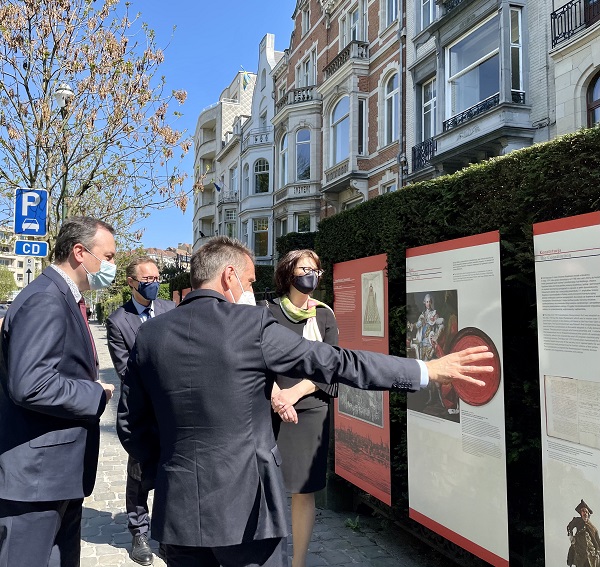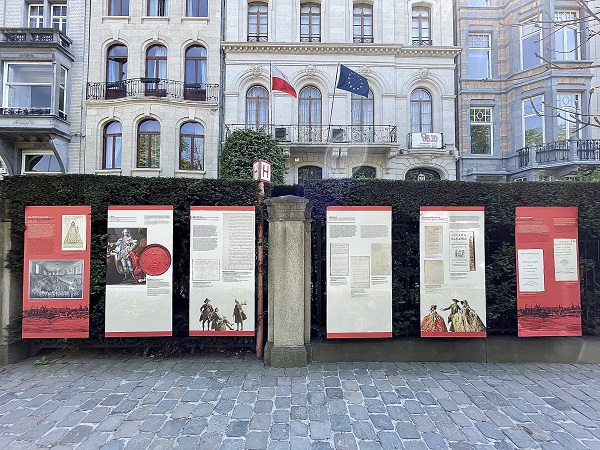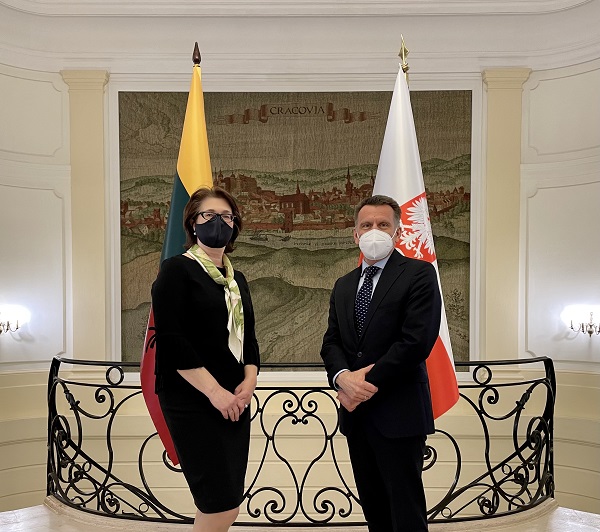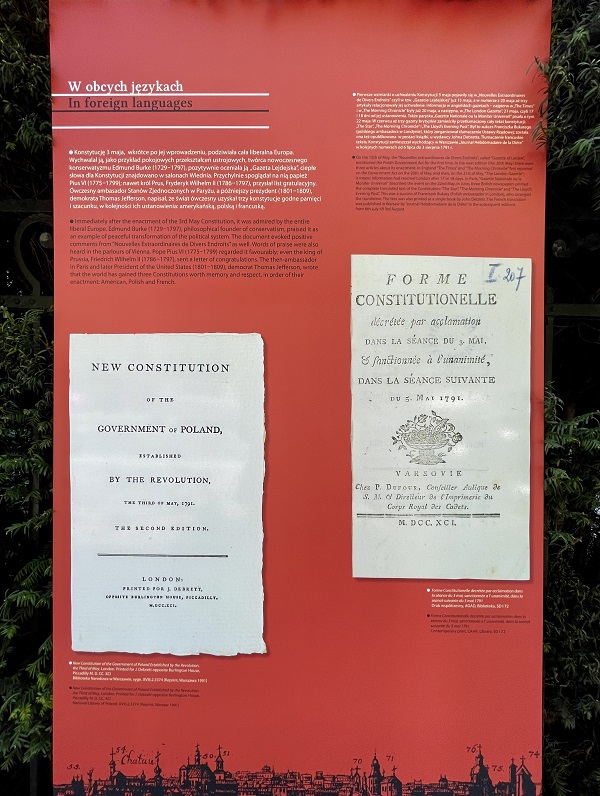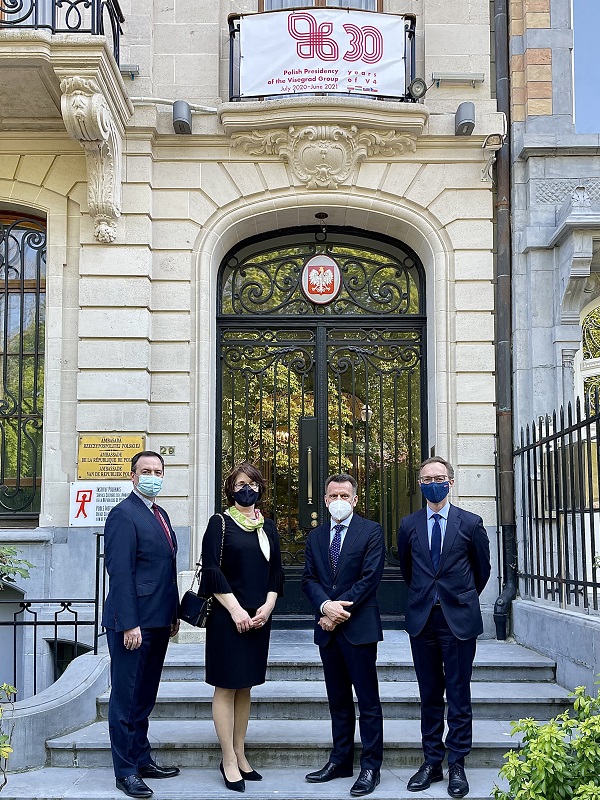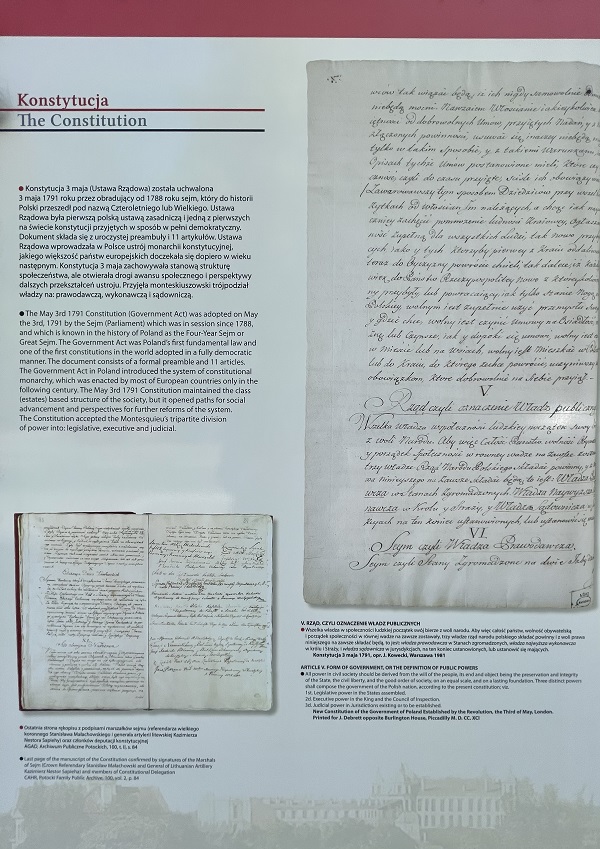Exhibition „The Constitution of May 3 (1791)”
28.04.2021
On the occasion of the 230th anniversary of the adoption of the Constitution of May 3, on 27th April 2021, the Ambassadors of Poland and Lithuania accredited to Belgium inaugurated an open-air exhibition in Brussels concerning the first in Europe and the second in the world modern constitution adopted democratically.

The Constitution of May 3 (Government Act) was adopted in Warsaw, on 3rd May 1791, by the Sejm (Parliament) of Polish-Lithuanian Commonwealth which was in session since 1788, and which is know in the history as the Four-Year Sejm or Great Sejm. The Government Act was Poland’s first fundamental law, the Europe’s first and the world’s second constitution adopted in a fully democratic manner.
The authors of the Constitution were inspired by the political thought and philosophy of the European Enlightenment and the American Constitution adopted in 1787. They believed that power should serve the good of the whole nation, not just the interests of privileged classes. The Constitution was meant to launch new reforms aimed at strengthening the state. Today, the measures taken to defend Poland at risk from its neighbours back then are an example of the responsibility and insight of society’s elites. The ultimate partition of Poland by Austria, Prussia and Russia in 1795 led to the loss of Polish statehood. Years later, the co-authors of the Constitution of May 3, Ignacy Potocki and Hugo Kołłątaj, concluded that it was “the last will and testament of an expiring Motherland.”
The celebration of the Constitution of May 3 was banned in partitioned Poland. When Poland regained independence after World War I, the anniversary of the Constitution of May 3 was declared a national holiday in 1919. Under German and Soviet occupation it was illegal to observe 3 May Constitution Day. After World War II, the communist authorities in Warsaw sought to ban 3 May Day celebrations because they invoked the traditions of independent Poland and its national-Catholic spirit. Instead, propaganda promoted Labor Day. For many years there were no national ceremonies to mark the Constitution of May 3, and all attempts to celebrate it usually ended with arrests and persecution. In 1990, after communism fell and Poland regained its sovereignty, the pre-war tradition was restored and 3 May was re-proclaimed a national holiday.
The Ambassadors of Estonia and Latvia accredited to Belgium also took part in the inauguration of the exhibition. At the invitation of the President of the Republic of Poland, the Presidents of the Baltic countries will celebrate the 230th anniversary of the Constitution of 3 May in Warsaw.
The exhibition design was prepared by the Central Archives of Historical Records in Warsaw and financed by the Ministry of Culture, National Heritage and Sport of the Republic of Poland. The production of the exhibition was financed by the Embassy of the Republic of Poland in Brussels.
Available to all visitors every day until 24th May 2021, in front of the Embassy of the Republic of Poland in Brussels at Avenue des Gaulois 29 (Merode metro station lines 1 & 5).
